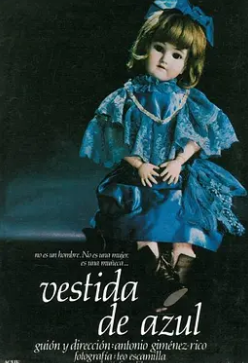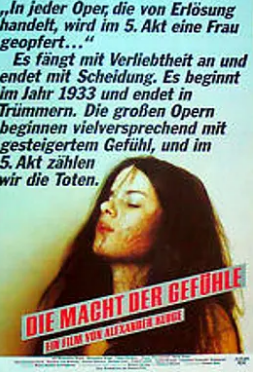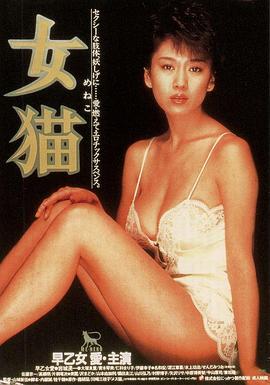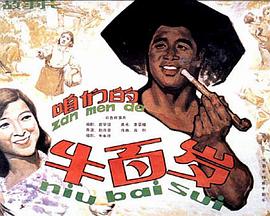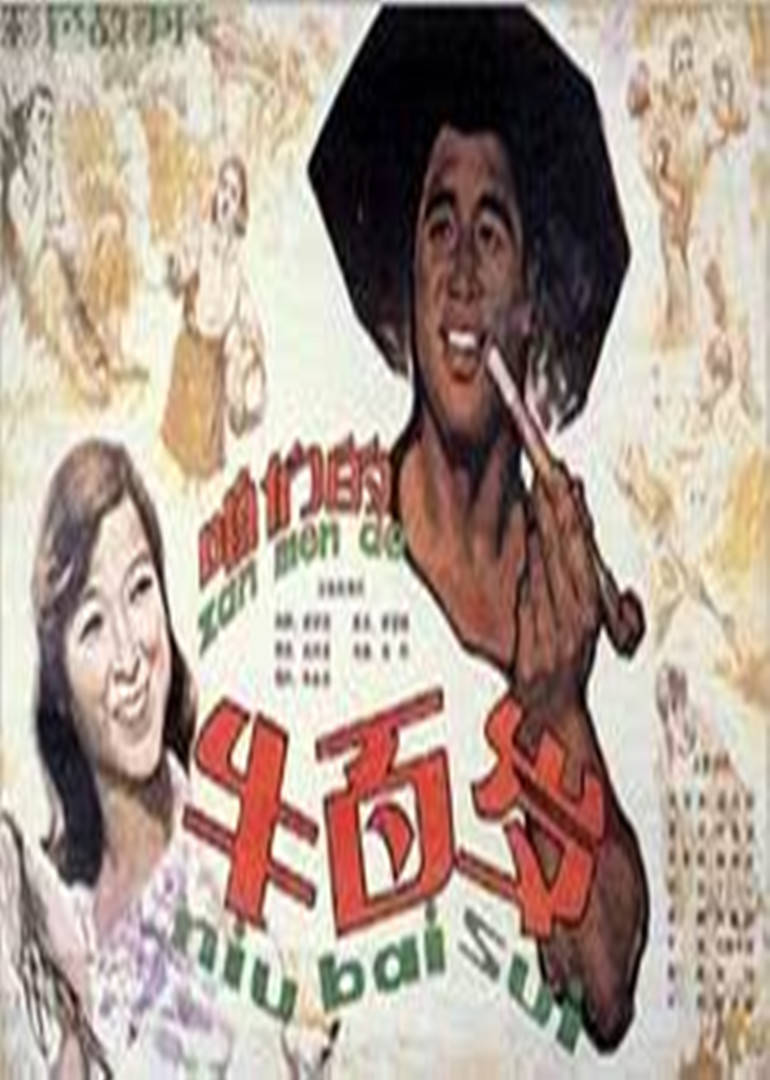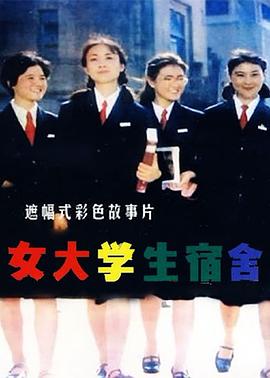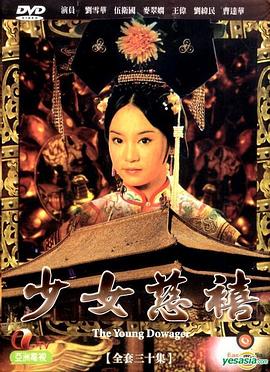-
备注:已完结
类型:剧情片
主演:未知
语言:其它
年代:未知
简介: A film written and directed by Antonio Giménez Rico, it follows a sextet of drag queens as they ply their trade on the streets and nightclubs of Madrid. There’s a graphic scene of one getting breast implants, and a touching scene of one visiting his parents in drag for a traditional Sunday dinner.
-
备注:已完结
类型:电影
主演:Hannelore Hoger Alexandra Kluge Edg
语言:德语
年代:未知
简介: The Power of Emotion explains that emotion isn't to be confused with sentimentality. Emotion is ancient and more powerful than any art form. The film looks at young couples who run into difficulties as they try to translate their experiences of love into clear decision-making. A woman who has shot her husband provides a judge with a puzzle. Those who love can bring the dead back to life by means of co-operation. That's the focus of the opera, "The Power Plant of Emotions" and the "Opera of the 20th Century" cinema. Alexander Kluge: The Power of Feeling When I started working on The Power of Feeling, I was not in a rational state. I did not say, I have a subject and now I will make a film about it. Instead I was spellbound and observed in my direct surroundings, for example, how feelings move. I have not really dealt with the theme of my mother's death and the fact that she was the one who taught me "how feelings move." Nor have I dealt with how she died. That was an entire palette of feelings: "All feelings believe in a happy end," and everyone believes tacitly that they will live forever: The entire palette is somehow optimistic, a positive attitude towards life having been put on the agendaas long as she was young, as long as her body held out, from one day to the next she collapsed. She just suddenly collapsed, like in an opera where disaster takes the stage in the fifth act. It felt as if I had observed an air raid or a disaster. The film The Power of Feeling is not about feelings, but rather their organization: how they can be organized by chance, through outside factors, murder, destiny; how they are organized, how they encounter the fortune they are seeking.What is all this organization of feelings about? Generally feelings tend to be a dictatorship. It is a dictatorship of the moment. The strong feeling I am having right now suppresses the others. For thoughts this would not be the case. One thought attracts others like a magnet. People therefore need affirmation by other people to be sure about their own feelings (to counteract the acquisition of their feelings through outside forces). Through the interaction of many people, for example, in public, the various feelings also have a magnetic attraction to one another just like thoughts do. Feelings communicate through their manifestation in public. The cinema is the public seat of feelings in the 20th century. The organization is set up thusly: Even sad feelings have a happy outcome in the cinema. It is about finding comfort: In the 19th century the opera house was the home to feelings. An overwhelming majority of operas had a tragic end. You observed a victim. I am convinced that there is a more adventuresome combination: Feelings in both the opera and traditional cinema are powerless in the face of destiny's might. In the 20th century feelings barricaded themselves behind this comfort, in the 19th century they entrenched themselves in the validity of the lethal seriousness.
-
备注:已完结
类型:动画电影
主演:Hannelore Hoger Alexandra Kluge Edg
语言:德语
年代:未知
简介: The Power of Emotion explains that emotion isn't to be confused with sentimentality. Emotion is ancient and more powerful than any art form. The film looks at young couples who run into difficulties as they try to translate their experiences of love into clear decision-making. A woman who has shot her husband provides a judge with a puzzle. Those who love can bring the dead back to life by means of co-operation. That's the focus of the opera, "The Power Plant of Emotions" and the "Opera of the 20th Century" cinema. Alexander Kluge: The Power of Feeling When I started working on The Power of Feeling, I was not in a rational state. I did not say, I have a subject and now I will make a film about it. Instead I was spellbound and observed in my direct surroundings, for example, how feelings move. I have not really dealt with the theme of my mother's death and the fact that she was the one who taught me "how feelings move." Nor have I dealt with how she died. That was an entire palette of feelings: "All feelings believe in a happy end," and everyone believes tacitly that they will live forever: The entire palette is somehow optimistic, a positive attitude towards life having been put on the agendaas long as she was young, as long as her body held out, from one day to the next she collapsed. She just suddenly collapsed, like in an opera where disaster takes the stage in the fifth act. It felt as if I had observed an air raid or a disaster. The film The Power of Feeling is not about feelings, but rather their organization: how they can be organized by chance, through outside factors, murder, destiny; how they are organized, how they encounter the fortune they are seeking.What is all this organization of feelings about? Generally feelings tend to be a dictatorship. It is a dictatorship of the moment. The strong feeling I am having right now suppresses the others. For thoughts this would not be the case. One thought attracts others like a magnet. People therefore need affirmation by other people to be sure about their own feelings (to counteract the acquisition of their feelings through outside forces). Through the interaction of many people, for example, in public, the various feelings also have a magnetic attraction to one another just like thoughts do. Feelings communicate through their manifestation in public. The cinema is the public seat of feelings in the 20th century. The organization is set up thusly: Even sad feelings have a happy outcome in the cinema. It is about finding comfort: In the 19th century the opera house was the home to feelings. An overwhelming majority of operas had a tragic end. You observed a victim. I am convinced that there is a more adventuresome combination: Feelings in both the opera and traditional cinema are powerless in the face of destiny's might. In the 20th century feelings barricaded themselves behind this comfort, in the 19th century they entrenched themselves in the validity of the lethal seriousness.
-
备注:已完结
类型:电影
主演:梁庆刚 王馥荔 钱勇夫 丁一 陈裕德 达娃平措 杨子纯 解衍 范旭霞
导演:赵焕章
语言:国语
年代:未知
简介: 联产承包后,胶东某地农村。支部委员牛百岁(梁庆刚 饰)把别的组不要的五个有各种缺点的人归拢到自已组里,人们戏称“懒汉组”。菊花(王馥荔 饰)的女儿叶儿(范旭霞 饰)的对象王小山(孙剑 饰)听说未来的丈母娘进了“懒汉组”提出分手。百岁的妻子秋霜(丁一 饰)听说百岁年轻时和菊花好过,隔墙大骂“狐狸精”。牛天胜(钱勇夫 饰)用新良(解衍 饰)偷来的钢筋搭兔窝被牛四(杨子纯 饰)发现,气得上山打兔子去了。这真是一波未平又起一波,百岁怀着一颗诚心感化这几个人,同时又对秋霜诉说他和菊花的往事,终于冰释前嫌。在劳动过程中,天胜和菊花产生好感,而田福(陈裕德 饰)却从中插一杠子。秋后,玉米丰收了,没有完成定额的田福跑到百岁家,拿石头砸了他家的锅......
-
备注:已完结
类型:剧情片
导演:赵焕章
语言:国语
年代:未知
简介:联产承包后,胶东某地农村。支部委员牛百岁(梁庆刚饰)把别的组不要的五个有各种缺点的人归拢到自已组里,人们戏称“懒汉组”。菊花(王馥荔饰)的女儿叶儿(范旭霞饰)的对象王小山(孙剑饰)听说未来的丈母娘进了“懒汉组”提出分手。百岁的妻子秋霜(丁一饰)听说百岁年轻时和菊花好过,隔墙大骂“狐狸精”。牛天胜(钱勇夫饰)用新良(解衍饰)偷来的钢筋搭兔窝被牛四(杨子纯饰)发现,气得上山打兔子去了。这真是一波未平又起一波,百岁怀着一颗诚心感化这几个人,同时又对秋霜诉说他和菊花的往事,终于冰释前嫌。在劳动过程中,天胜和菊花产生好感,而田福(陈裕德饰)却从中插一杠子。秋后,玉米丰收了,没有完成定额的田福跑到百岁家,拿石头砸了他家的锅......
-
备注:已完结
类型:港剧
主演:刘雪华 麦翠娴 彭文坚 伍卫国 王伟 刘纬民 冼焕贞 梁汉威 司马华龙
语言:国语
年代:未知
简介: 满族少女叶赫那拉玉兰(刘雪华 饰)天资聪慧,心高气傲,一心想要摆脱贫穷的生活挤入上层社会。某日,她于雪地之中邂逅了微服出访的六皇子奕欣(伍卫国 饰),而奕欣又和一直爱慕玉兰的李乐天(刘纬民 饰)结为了好友,三人之间关系十分复杂。 奕欣突然接到急诏回宫不辞而别,这让玉兰感到十分心痛。玉兰决定参加秀女选拔,而奕欣则在宫廷争斗之中落败,被继位的咸丰帝(黄浩义 饰)封为恭亲王。冰雪聪明的玉兰在宫中步步高升,最终被封为懿妃,却受到了咸丰帝的提防,权力遭到架空。同治帝登基后,封玉兰为西宫太后慈禧,而在此期间,恭亲王一直默默守候在玉兰的背后,助玉兰最终登上了权力的顶峰。
